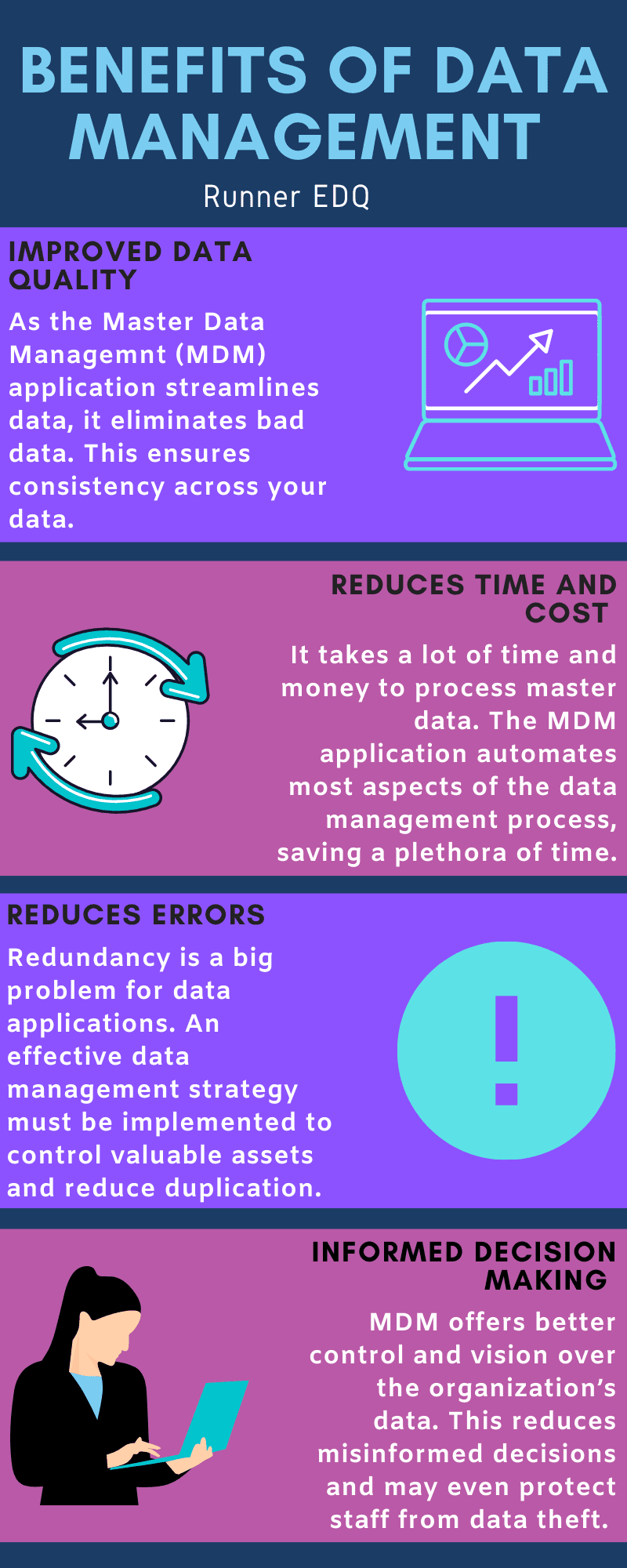Why It's Important
3 MINUTE READ
Managing data of your company in an effective way is one of the crucial things that companies usually forget to take care of, which is why they suffer a huge loss. So, if you are running a company where you have to deal with a huge amount of data, then it is important to manage it effectively. Here are the benefits of managing data.
Effective and Useful Data Analysis
Duplicate and similar data can create a lot of issues for your business, and it even can be fatal in some cases. Through data management, you can get critical decision-enabling and smart data analysis.
Minimized Errors
Data management helps in minimizing the damages caused by bad data and the potential for errors. The greater occurrence of processes like drag and drop, copy-paste, and linking of documents, the greater the probability of data errors. Therefore, an effective data quality initiative and data management strategy must be implemented to control the business’s most valuable assets.
Data Consistency
Data management guarantees data consistency, which makes work easier as it eliminates redundancy, confusion, and creates an easier and more consistent workflow.
Easy Backup
It is easy to take backups with centralized data sources, which helps significantly during disaster management.
Efficiency Improvements
If your data is managed properly, updated, and enhanced, data accessibility and your business’s efficiency will increase exponentially. However, If the data is mismanaged, it can waste a huge amount of time and resources.
Protection From Data-Related Risks and Problems
Proper data management ensures that vital data is never lost and stays protected inside the organization. Data security is a vital part of data management. It protects staff and companies from data thefts, losses, and breaches.
Improved Data Quality
As the data management application streamlines the data, it eliminates bad data. As a result, employees can work with more current data that is of better quality and more useful.
If master data is saved in multiple destinations like traditional spreadsheets, different formats, and isolated applications, it can significantly reduce the usability of the data. Also, inconsistent data formatting can hurt the productivity of various processes that rely on master data.
MDM ensures uniformity and consistency across the data.
Increased Data Accuracy
MDM prunes inconsistencies and duplication in the data. As discrepancies in data could have a ripple effect on almost all business areas of the company, it is essential to get it right at the master data level.
Reduces Time and Cost
It could be challenging for organizations to manage the increasing volume of data without data management. The master data is very complex, which makes manual processing very challenging. It also takes a lot of money and time to process master data accurately.
Informed Decision Making
MDM offers better control and vision over the organization’s data. Wrong or incomplete information could lead the management to make misinformed decisions that would impact the strategy and long-term growth of the company.







